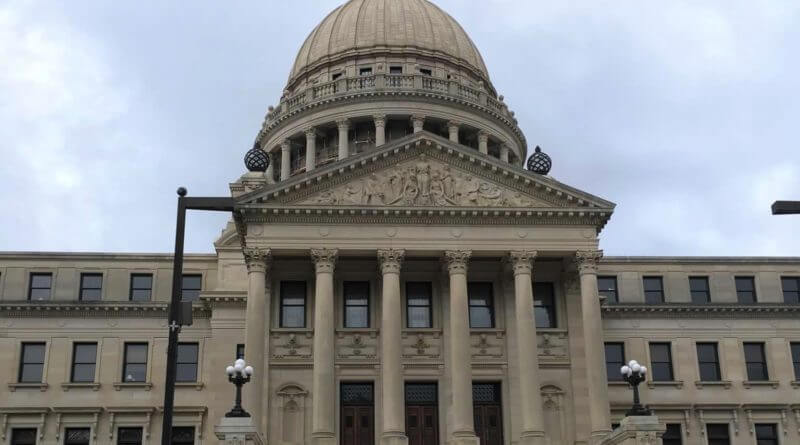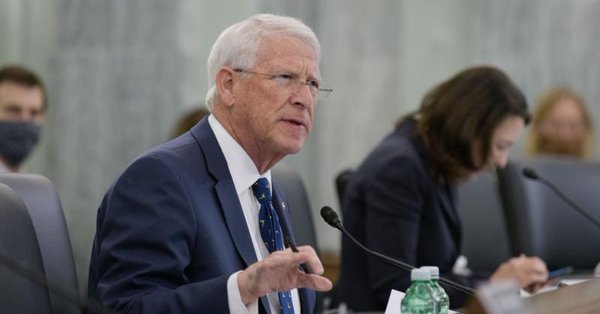Legislature may look into Reeves’ emergency powers
Mississippi’s Lt. Governor has hinted that the Legislature may look at the scope of powers the Governor’s office has in issuing emergency orders in situations such as the current COVID-19 pandemic.
Last month, the Joint Legislative Committee on Performance Evaluation and Expenditure Release, or PEER Committee, wrote its report called, “A Legal Analysis of Mississippi’s Emergency Powers and Actions Taken During the COVID-19 Pandemic.” The 66-page report was released earlier this week.

State Sen. Kevin Blackwell (R-Southaven) is a member of the committee. Senators and state representatives make up the committee that was originally formed in 1973.
The conclusion stated in the PEER committee’s final report, released Nov. 17, was that Mississippi’s Emergency Powers statutes provide sufficient protection to its citizens.
There have been concerns, however, that the Governor’s emergency powers may be too exclusive and that the state Legislature should have more say in the process.

Lt. Governor Delbert Hosemann, who is also President of the State Senate, was in DeSoto County this week and spoke exclusively to DeSoto County News on a number of items, with the PEER Committee report being one of those issues.
Hosemann said the report will be the basis of discussions when the Legislature convenes on Jan. 5. He said Mississippi is one of the few states where the governor has very broad powers without legislative oversight on emergencies.
“With the state constitution and the legislature now existing, the governor really has the exclusive authority on orders of these kinds of matters,” Hosemann said. “When the vaccine comes we’ll have the time to start moving a lot of these particular orders.”
One of the committee’s concerns in its report is that the Governor’s decision to declare an emergency is subject only to his own review every 30 days. The Legislature has no formal role in the process.
“Most states do have legislation and sometimes their legislatures can call themselves back into session and make adjustments to matters like this,” Hosemann said. “We do not have that currently in Mississippi.”
The report found that there are 25 states that give its Legislature the power to set an emergency declaration aside. That is not the case in Mississippi at this time. The COVID emergency has required Gov. Tate Reeves to take many actions that many never thought would never have to be taken before.
“Six states limit the duration of an emergency, giving the Legislature a role in the process of determining how the state should respond to the emergency,” the report stated. “A good argument can be made that Mississippi should join a majority of states in giving the Legislature a stronger voice in emergency policy making. A broad grant of power without legislative oversight and assent could constitute an unconstitutional delegation of powers.”
Hosemann said among the over 60 emergency orders that Reeves has issued during the pandemic are two that were being flagged as being illegal..
‘I think everybody is looking at those,” Hosemann said. “We have to remember and recognize that we are in a pandemic and that there are draconian measures that need to be taken. As to the breadth of those and the length of those, I think those are up for discussion.”
Executive Order 1499 suspended the requirements of several CODE sections requiring the appointment of members to certain boards and commissions. Executive Order 1504 suspended the application review and selection deadline for the position of the Director of the Public Utilities staff. Those were the two orders the committee flagged as potentially being illegal.
The PEER Committee findings also concluded that executive orders from the City of Jackson, City of Holly Springs and the City of Greenville to address the pandemic appeared to curtail fundamental freedoms protected by the U.S. and Mississippi Constitutions.
“After this PEER committee report comes out it’ll be the basis for discussions in the legislature about how we address that this next year,” Hosemann said.
Recommendations made by the PEER Committee include the enacting of a state law similar to what is found in Kansas and Utah, where there are limits to the duration of an emergency to a finite number of days, instead of what seems now to be a “till further notice” apparent end date.
Another recommendation is that local leaders be offered training through the Mississippi Municipal League and the Mississippi Association of Supervisors on the proper crafting of local emergency orders.
The Lt. Governor was in DeSoto County to speak with local leaders on a variety of subjects specific to North Mississippi and the county in particular.
“I think it’s really important to sit down with the people that you have elected here and go over what your issues are and how we can help,” Hosemann said. “DeSoto County is doing exceptionally well, you can see how many people it’s growing. Those additions bring growing pains, bring infrastructure issues, all kinds of other issues that go with that. What we learned we’re going to take back to the legislature.”
The full report may be read on the PEER Committee’s website.







Strip Tater Tot of ALL his Executive Powers and send him home! We are tired of his lies!